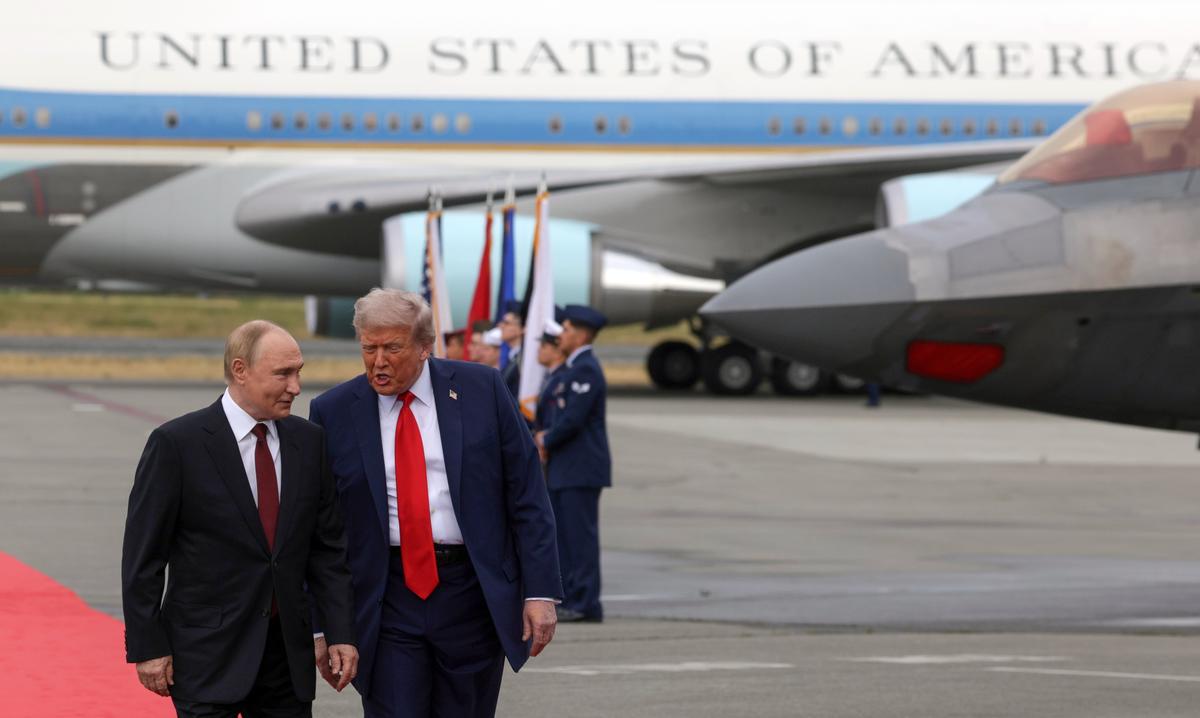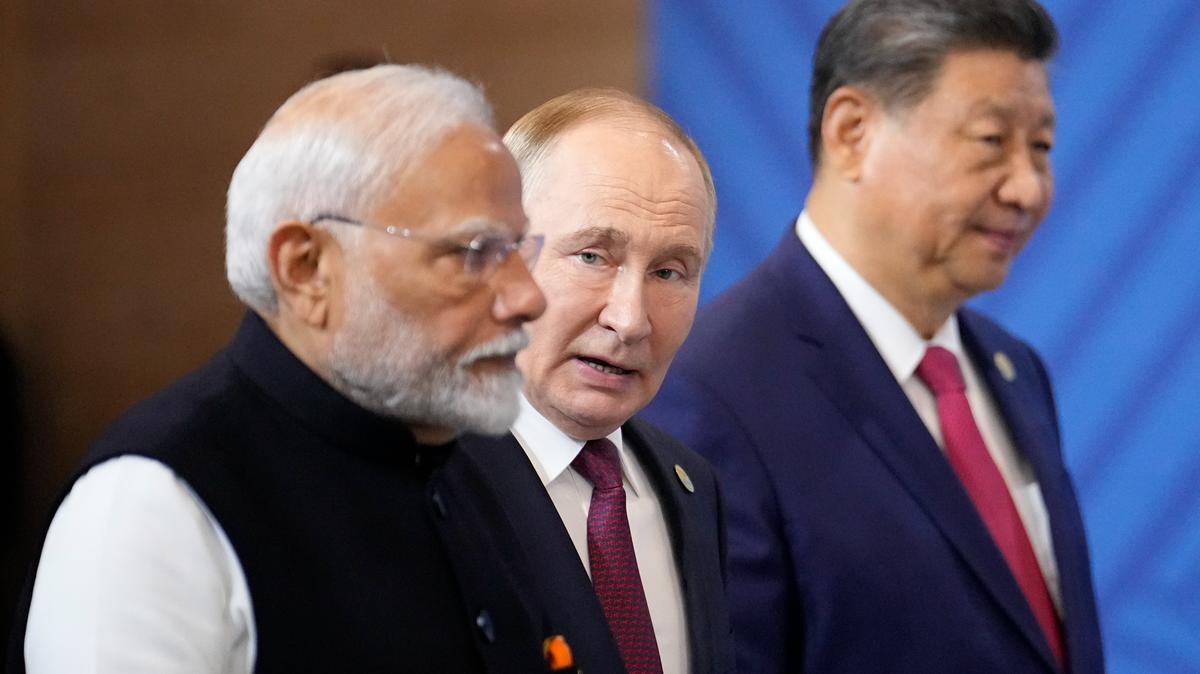The summit of the Shanghai Cooperation Organisation (SCO) in Tianjin, China, from 31 August to 1 September, will be the organisation’s largest gathering of heads of state to date. It comes at a time when the existing liberal international order is rapidly disintegrating. But rather than offering a concrete new order, the SCO demonstrates the persistent difficulties that anti-liberal powers such as China and Russia have in agreeing and implementing a credible alternative.

Stefan Wolff
Professor of International Security at the University of Birmingham
Founded in Shanghai in 2001 with just six members — Russia, China, Kazakhstan, Kyrgyzstan, Tajikistan and Uzbekistan — the SCO has grown rapidly over the past decade. India and Pakistan joined in 2017, Iran in 2023, and Belarus in 2024.
Beyond these 10 member states, the SCO also has two observers — Afghanistan and Mongolia — and 14 dialogue partners, including Turkey, Egypt, Armenia and Azerbaijan, several of the Gulf states, and a number of other Asian states. If measured by population of its core member states, it is the world’s largest regional organisation.
Size clearly matters, but in the case of the SCO it creates problems rather than contributing to their resolution. The organisation did little in response to escalating tensions between India and Pakistan in the wake of the terrorist attacks in Kashmir that eventually brought the two long-standing rivals to the brink of nuclear confrontation.
The marked difference to these previous summits is, of course, US President Donald Trump’s return to the White House.
It took US mediation to de-escalate the violence. The SCO’s subsequent failure to condemn cross-border terrorism explicitly in a joint statement of the meeting of defence ministers at the end of June led India to refuse to sign it. When Israel attacked Iran, the SCO issued a strongly worded condemnation of the attacks. But India officially distanced itself from the SCO statement.
These and other simmering tensions, such as between India and China over a new dam project in Tibet, are likely to be papered over at the SCO summit in Tianjin. China’s president, Xi Jinping, will be keen to demonstrate his country’s leadership of a large coalition of like-minded nations who oppose the hitherto US-led liberal international order.
However, the theme of this year’s summit is “Upholding the Shanghai Spirit: SCO on the Move”. This sounds more like an aspirational plea to member states, observers and dialogue partners rather than a concrete plan for action.
The so-called Shanghai spirit — a hazy mixture of standard Chinese talking points about mutual respect, peaceful co-existence and win-win cooperation — is little more than empty rhetoric. It is also very fragile.

US President Donald Trump welcomes Vladimir Putin at Joint Base Elmendorf-Richardson in Anchorage, Alaska, USA, 15 August 2025. Photo: EPA/GAVRIIL GRIGOROV/SPUTNIK/KREMLIN POOL
Two member states — India and Pakistan — have recently gone to war with each other. Two SCO dialogue partners — Armenia and Azerbaijan — have been involved in several full-scale violent confrontations since they became dialogue partners almost a decade ago. And if they have now embraced the Shanghai spirit, they did so, ironically, in Washington and after their relations with Russia significantly soured.
Nor does the SCO have much of a track record of constructive involvement in internal conflicts in its member states and dialogue partners, such as Kyrgyzstan and Myanmar. This is even more obvious in the case of Afghanistan where Russia’s recent official recognition of the Taliban government poses yet another challenge to the SCO.
The SCO’s very selective commitment to the Shanghai spirit does not extend to relations between the organisation and non-member states.
China has cautiously welcomed Russia’s recognition but has not followed suit itself, while several Central Asian member states of the SCO already have a wide range of economic ties with Afghanistan. But Pakistan, Iran and the Gulf states remain deeply ambivalent about the Taliban regime.
It’s also worth noting that the SCO’s very selective commitment to the Shanghai spirit does not extend to relations between the organisation and non-member states. That much is evident from the SCO’s lack of condemnation of Russian aggression against Ukraine. So it’s difficult to see where the SCO will move. Previous summits in 2022, 2023 and 2024 produced lengthy declarations of intent, but little follow-through.
The marked difference to these previous summits is, of course, US President Donald Trump’s return to the White House.
On the one hand, Trump has demonstrated the near-irrelevance of the SCO as a security player compared to the indispensability of the US when it comes to managing crises, such as those between India and Pakistan, Armenia and Azerbaijan and Cambodia and Thailand.
On the other hand, Trump’s weaponisation of trade has created a new dynamic within the SCO. The US president’s imposition of punitive tariffs might see the organisation’s most powerful countries — China, Russia and India — align more closely against the US.
Sanctions against Russia, however unlikely they may be to be fully implemented by Trump, are still on the table. Heavy tariffs have now been imposed on India for continuing to buy Russian oil, and the trade war with China is only paused but not settled.
For their own sake, China, Russia and India must demonstrate a unity of purpose at the SCO summit.
For their own sake, and even more so for the sake of their actual and potential partners in the global south, China, Russia and India must demonstrate a unity of purpose at the SCO summit. They will condemn the US and the liberal international order, which Trump himself is actively eroding. But their unity of purpose will be limited and performative.
Meanwhile, the differences that remain between them and their conflicting individual aspirations to lead a post-American international order will prevent them from offering a credible alternative.
Undoubtedly, there will be carefully choreographed displays of solidarity and aspirational statements of how the spirit of Shanghai will shape a new international order. But these rest on the false premise that a post-American international order will be a non-American order.
Trump may try to make a deal with Russia and China on a new world order, but a president who publicly muses about renaming the US Department of Defence to the Department of War is unlikely to cede global leadership, at least not without a fight.
This article was first published in The Conversation. Views expressed in opinion pieces do not necessarily reflect the position of Novaya Gazeta Europe.
Join us in rebuilding Novaya Gazeta Europe
The Russian government has banned independent media. We were forced to leave our country in order to keep doing our job, telling our readers about what is going on Russia, Ukraine and Europe.
We will continue fighting against warfare and dictatorship. We believe that freedom of speech is the most efficient antidote against tyranny. Support us financially to help us fight for peace and freedom.
By clicking the Support button, you agree to the processing of your personal data.
To cancel a regular donation, please write to [email protected]

